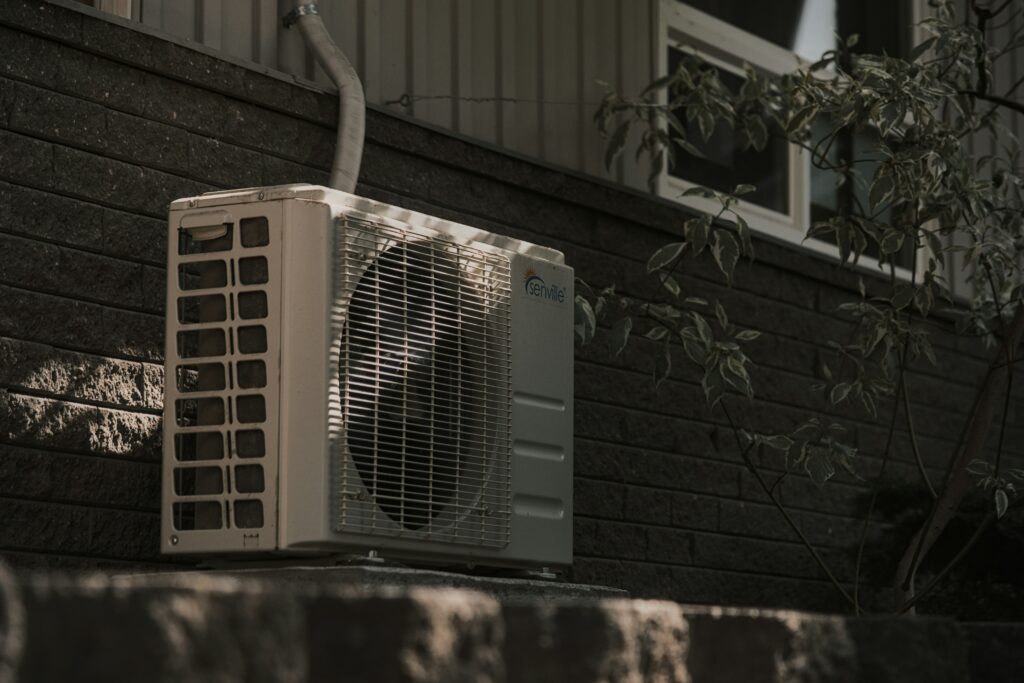Find the best heating and cooling solution for year-round comfort in North Texas.
Understanding Your Home’s HVAC Needs
Choosing the right HVAC system isn’t just about picking a unit—it’s about finding the best fit for your home’s size, layout, and efficiency needs.
Key Factors That Affect Your HVAC Choice
Before selecting a system, consider these critical factors:
- Square Footage & System Sizing: An undersized unit won’t effectively cool or heat your home, while an oversized unit will short-cycle, reducing efficiency and lifespan. Proper load calculations ensure optimal performance and lower energy costs.
- Insulation Quality: Homes with poor attic insulation or air leaks will force any HVAC system to work harder. Proper insulation and air sealing can improve efficiency and prevent uneven temperatures.
- Ductwork Condition: If your home has leaky or uninsulated ducts, up to 30% of conditioned air could be lost before it even reaches your rooms. Sealing and insulating ducts can improve airflow and system efficiency.
- DFW’s Climate Needs: North Texas experiences extreme summer heat, occasional winter freezes, and high humidity, so your HVAC system should be able to handle fluctuating temperatures efficiently.
💡 Pro Tip: A professional HVAC assessment ensures your system is properly sized and suited for your home’s insulation and ductwork conditions.
Types of HVAC Systems for DFW Homes

Different HVAC systems have unique benefits, and the best choice depends on your home’s size, efficiency goals, and budget.
1. Central Air Conditioning & Furnaces
✅ Best for: Whole-home cooling and heating in traditional homes.
✅ Why it’s good for DFW: Central AC systems provide consistent cooling for large homes, while gas furnaces efficiently handle occasional winter cold snaps.
✅ Energy Considerations: Choose a high-SEER AC (16+ SEER) and high-AFUE furnace (90+ AFUE) for efficiency.
2. Heat Pumps (Electric Heating & Cooling)
✅ Best for: Homes looking for a dual-purpose, energy-efficient solution.
✅ Why it’s good for DFW: Heat pumps work well in moderate winter climates like North Texas, where freezing temperatures are rare. They use electricity to transfer heat rather than generate it, making them more efficient than furnaces.
✅ Energy Considerations: Look for high HSPF (8.5+) and SEER ratings (18+) for the best efficiency.
3. Ductless Mini-Split Systems
✅ Best for: Homes without existing ductwork, older homes, or room additions.
✅ Why it’s good for DFW: Mini-splits allow zoned heating and cooling, meaning you can set different temperatures in different areas, reducing wasted energy.
✅ Energy Considerations: Mini-splits often have higher SEER ratings than central AC, making them one of the most energy-efficient options.
4. Hybrid (Dual-Fuel) Systems
✅ Best for: Homeowners wanting a backup heating option during extreme cold.
✅ Why it’s good for DFW: A hybrid system switches between an electric heat pump and a gas furnace based on outdoor temperatures, optimizing efficiency.
✅ Energy Considerations: Great for long-term savings if you experience both hot summers and occasional winter freezes.
💡 Pro Tip: If energy efficiency is a top priority, heat pumps and mini-split systems offer the highest efficiency ratings.
DOWNLOAD: Comparison Chart: Pros and Cons of HVAC Systems for DFW
Factors to Consider When Choosing an HVAC System
1. SEER & Energy Efficiency Ratings
The Seasonal Energy Efficiency Ratio (SEER) measures how efficiently an air conditioner cools your home.
- Minimum SEER for new units in Texas: 15
- High-efficiency models: 18+ SEER (can reduce energy bills by 30% or more).
2. Noise Levels
Some HVAC systems are louder than others. If quiet operation is important, look for:
- Variable-speed motors, which adjust airflow smoothly.
- Insulated compressor units for quieter performance.
- Ductless mini-splits, which are among the quietest HVAC options.
3. Budget & Long-Term Savings
While upfront costs matter, consider long-term energy savings and potential rebates:
- High-efficiency HVAC systems can cut cooling and heating costs by up to 50%.
- Many utility companies and federal programs offer rebates for energy-efficient systems (see below for details).
- Investing in a smart thermostat can automate energy savings year-round.
💡 Pro Tip: A slightly higher upfront investment in efficiency can save thousands over the system’s lifespan in lower energy bills and fewer repairs.
Working with Green Attics: Your HVAC Partner in DFW
Choosing an HVAC system isn’t just about picking a unit—it’s about getting expert recommendations, proper installation, and long-term support.
Why Choose Green Attics?
✔ Professional Load Calculations: We custom-size your system to match your home’s exact needs.
✔ Expert Installation: Proper installation ensures maximum efficiency, longevity, and comfort.
✔ Energy Efficiency Focus: We help you choose systems with high SEER ratings for the best savings.
✔ Rebate Assistance: Our team guides you through available rebates and tax credits for HVAC upgrades.
✔ Ongoing Maintenance Support: We offer seasonal tune-ups and repair services to keep your system running at peak efficiency.
📞 Need help choosing the perfect HVAC system? Call Green Attics today for a consultation!
DOWNLOAD: Comparison Chart: Pros and Cons of HVAC Systems for DFW
Making the Right HVAC Investment

Choosing the best HVAC system for your home is an important decision that affects comfort, energy costs, and indoor air quality. To make the best choice:
✅ Consider your home’s square footage, insulation, and ductwork condition.
✅ Compare different system types to find the best fit for DFW’s climate.
✅ Look for high SEER ratings and energy-efficient features.
✅ Work with professionals for proper installation and long-term support.
At Green Attics, we help homeowners select, install, and maintain high-efficiency HVAC systems tailored to their specific needs. Contact us today to get started!

